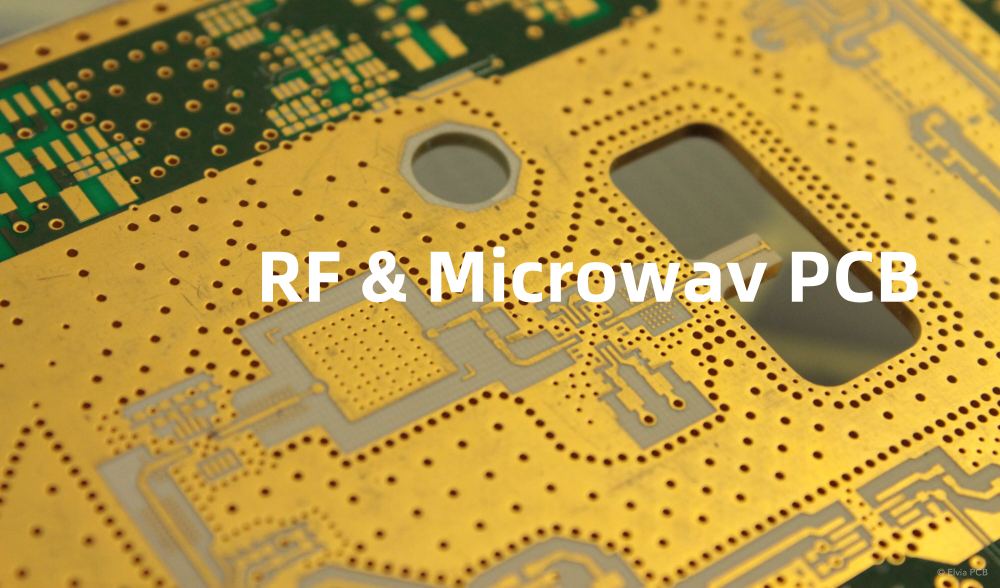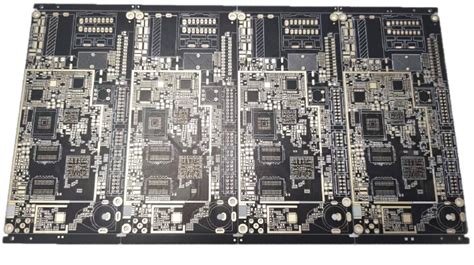Understanding Automotive PCB Requirements
Before diving into the selection process, it’s essential to understand the unique requirements of automotive PCBs. These PCBs must withstand harsh environmental conditions, such as extreme temperatures, vibrations, and moisture. Additionally, they must adhere to strict industry standards and regulations to ensure the safety and reliability of the vehicle.
Automotive PCB Standards and Certifications
Automotive PCBs must comply with various industry standards and certifications, including:
- IATF 16949: Quality management system standard for the automotive industry
- AEC-Q100: Qualification standard for automotive-grade integrated circuits
- IPC-6012: Qualification and performance specification for rigid printed boards
- IPC-A-610: Acceptability of electronic assemblies
When choosing an automotive PCB manufacturer, ensure that they are certified and compliant with these standards to guarantee the quality and reliability of your PCBs.
Environmental Factors Affecting Automotive PCBs
Automotive PCBs are exposed to various environmental factors that can impact their performance and longevity. These factors include:
- Temperature extremes: -40°C to +125°C
- Vibration and shock: Up to 50G
- Humidity: Up to 95% relative humidity
- Chemical exposure: Fuel, oil, and other automotive fluids
Your chosen automotive PCB manufacturer should have experience in designing and manufacturing PCBs that can withstand these environmental challenges.
Key Factors to Consider When Choosing an Automotive PCB Manufacturer
1. Experience and Expertise in Automotive PCB Manufacturing
When selecting an automotive PCB manufacturer, it’s crucial to choose a company with extensive experience and expertise in the automotive industry. Look for a manufacturer that has a proven track record of producing high-quality automotive PCBs and has worked with reputable automotive clients.
An experienced automotive PCB manufacturer will have a deep understanding of the unique requirements and challenges of the industry, ensuring that your PCBs are designed and manufactured to the highest standards.
2. Quality Management System and Certifications
A reliable automotive PCB manufacturer should have a robust quality management system (QMS) in place to ensure consistent quality throughout the manufacturing process. The QMS should be certified to industry standards, such as IATF 16949, which is specifically designed for the automotive industry.
Additionally, look for a manufacturer that holds other relevant certifications, such as ISO 9001 for general quality management and ISO 14001 for environmental management. These certifications demonstrate the manufacturer’s commitment to quality, continuous improvement, and environmental responsibility.
3. Advanced Manufacturing Capabilities
The automotive industry is constantly evolving, with new technologies and innovations being introduced regularly. To keep up with these advancements, your chosen automotive PCB manufacturer should have advanced manufacturing capabilities, such as:
- High-density interconnect (HDI) PCBs
- Flexible and rigid-flex PCBs
- Multilayer PCBs
- Surface mount technology (SMT)
- Conformal coating and potting
These advanced capabilities enable the manufacturer to produce complex, high-performance PCBs that meet the demanding requirements of modern automotive applications.
4. Rigorous Testing and Inspection Procedures
To ensure the reliability and quality of automotive PCBs, your chosen manufacturer should have rigorous testing and inspection procedures in place. These procedures should cover every stage of the manufacturing process, from incoming material inspection to final product testing.
Some essential testing and inspection methods for automotive PCBs include:
- Automated optical inspection (AOI)
- X-ray inspection
- In-circuit testing (ICT)
- Functional testing
- Environmental stress screening (ESS)
- Burn-in testing
A manufacturer that invests in advanced testing equipment and adheres to strict testing protocols will deliver high-quality PCBs that meet the demanding requirements of the automotive industry.
5. Supply Chain Management and Traceability
In the automotive industry, traceability is essential for ensuring the quality and reliability of PCBs. Your chosen automotive PCB manufacturer should have a robust supply chain management system that enables full traceability of materials, components, and processes.
The manufacturer should be able to provide detailed documentation, such as material certifications, process control records, and test reports, for each batch of PCBs. This documentation helps to identify and resolve any issues that may arise, ensuring the timely delivery of high-quality PCBs.
6. Customer Support and Communication
Effective communication and responsive customer support are critical when working with an automotive PCB manufacturer. Look for a manufacturer that assigns a dedicated account manager or project manager to your account, ensuring that you have a single point of contact for all your needs.
The manufacturer should also provide regular updates on your project’s progress, proactively address any concerns or issues, and be willing to collaborate with your team to optimize the design and manufacturing process.
7. Cost-Effectiveness and Delivery Time
While cost is an important consideration when choosing an automotive PCB manufacturer, it should not be the sole deciding factor. Prioritize manufacturers that offer a balance between cost-effectiveness, quality, and reliability.
Additionally, consider the manufacturer’s delivery time and flexibility. In the fast-paced automotive industry, timely delivery is crucial. Choose a manufacturer that can consistently meet your delivery schedules without compromising on quality.
Automotive PCB Design Considerations
When designing automotive PCBs, there are several key factors to consider to ensure optimal performance and reliability. Your chosen automotive PCB manufacturer should have the expertise to guide you through the design process and offer valuable insights to optimize your PCB design.
1. Material Selection
The choice of PCB materials is crucial for automotive applications. The materials must be able to withstand the harsh environmental conditions encountered in vehicles, such as extreme temperatures, vibrations, and moisture. Common PCB materials for automotive applications include:
- FR-4: A standard PCB material with good thermal and mechanical properties
- Polyimide: A high-temperature material suitable for applications up to 260°C
- Ceramic: An excellent choice for high-temperature and high-power applications
Your automotive PCB manufacturer should have experience working with these materials and be able to recommend the most suitable option for your specific application.
2. Thermal Management
Automotive PCBs often operate in high-temperature environments, making thermal management a critical design consideration. Proper thermal management ensures that the PCB and its components remain within their safe operating temperature ranges, preventing premature failure and ensuring long-term reliability.
Some thermal management techniques for automotive PCBs include:
- Using high-temperature materials
- Incorporating thermal vias and heat sinks
- Optimizing component placement and routing
- Employing conformal coating or potting for additional protection
Your automotive PCB manufacturer should have the expertise to incorporate these thermal management techniques into your PCB design, ensuring optimal performance and reliability.
3. Electromagnetic Compatibility (EMC)
Automotive PCBs are exposed to various electromagnetic interference (EMI) sources, both within the vehicle and from external sources. It’s essential to design PCBs that are resistant to EMI and do not contribute to electromagnetic emissions that could interfere with other vehicle systems.
To ensure electromagnetic compatibility, consider the following design practices:
- Proper grounding and shielding
- Minimizing loop areas and current paths
- Using filters and suppressors
- Employing differential signaling for high-speed interfaces
Your automotive PCB manufacturer should have experience in EMC design and be able to advise you on the best practices for ensuring electromagnetic compatibility in your PCB design.

Frequently Asked Questions (FAQ)
-
Q: What certifications should I look for in an automotive PCB manufacturer?
A: Look for manufacturers that are certified to industry standards such as IATF 16949 for quality management, ISO 9001 for general quality management, and ISO 14001 for environmental management. Additionally, ensure that the manufacturer is compliant with automotive PCB standards like AEC-Q100 and IPC-6012. -
Q: How can I ensure the reliability of my automotive PCBs?
A: To ensure reliability, choose a manufacturer that employs rigorous testing and inspection procedures, such as automated optical inspection (AOI), X-ray inspection, in-circuit testing (ICT), and environmental stress screening (ESS). Additionally, consider design factors such as material selection, thermal management, and electromagnetic compatibility. -
Q: What should I look for in an automotive PCB manufacturer’s supply chain management?
A: Look for a manufacturer with a robust supply chain management system that enables full traceability of materials, components, and processes. The manufacturer should be able to provide detailed documentation, such as material certifications, process control records, and test reports, for each batch of PCBs. -
Q: How important is customer support and communication when working with an automotive PCB manufacturer?
A: Effective communication and responsive customer support are crucial when working with an automotive PCB manufacturer. Look for a manufacturer that assigns a dedicated account manager or project manager to your account, provides regular updates on your project’s progress, and proactively addresses any concerns or issues. -
Q: What should I prioritize when choosing an automotive PCB manufacturer: cost, quality, or delivery time?
A: While cost is an important consideration, it should not be the sole deciding factor. Prioritize manufacturers that offer a balance between cost-effectiveness, quality, and reliability. Additionally, consider the manufacturer’s delivery time and flexibility, as timely delivery is crucial in the fast-paced automotive industry.
Conclusion
Choosing a reliable automotive PCB manufacturer is essential to ensure the safety, performance, and functionality of your automotive electronics. When selecting a manufacturer, consider factors such as experience and expertise in the automotive industry, quality management systems and certifications, advanced manufacturing capabilities, rigorous testing and inspection procedures, supply chain management and traceability, customer support and communication, and cost-effectiveness and delivery time.
By partnering with a reputable automotive PCB manufacturer that meets these criteria, you can be confident that your PCBs will meet the stringent requirements of the automotive industry, ensuring the success of your automotive electronics projects.

No responses yet